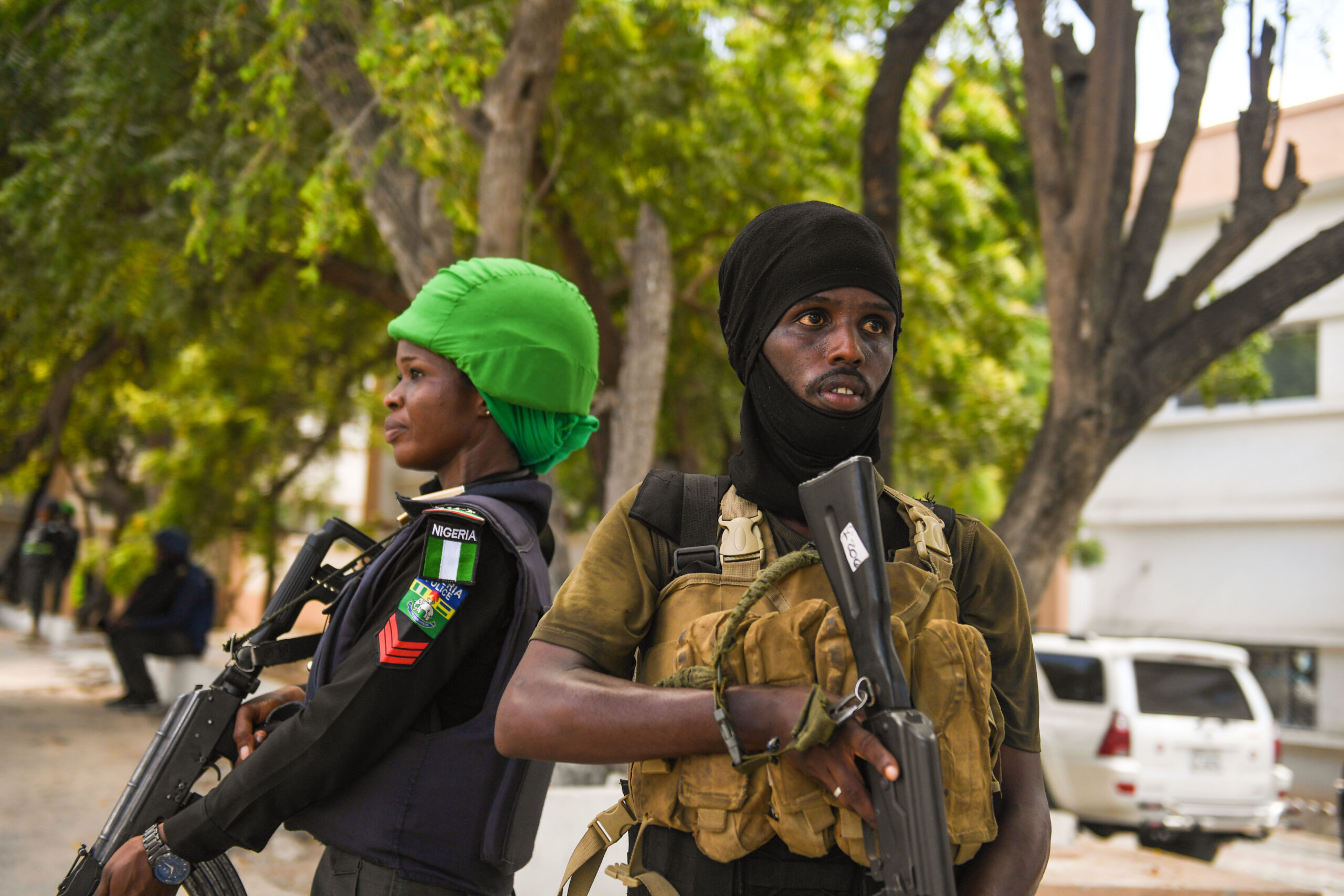Somalia Seeks Delay in ATMIS Troop Withdrawals
ADF STAFF
Somalia has asked the United Nations to delay a planned drawdown of 3,000 African Union peacekeepers for three months to allow its security forces time to regroup after a series of extremist attacks.
The African Union Transition Mission in Somalia (ATMIS), which is mandated by the U.N. Security Council, took over for the African Union Mission to Somalia, also known as AMISOM, in April 2022.
ATMIS completed the first phase of the drawdown of 2,000 troops on June 30 and was due to withdraw more September 30, reducing its military personnel to 14,626. But Reuters has reported that in a September 19 letter to the U.N. Security Council, Hussein Sheikh Ali, national security advisor for Somali President Hassan Sheikh Mohamud, asked the U.N. to delay the latest troop withdrawal. He said the government’s yearlong campaign to liberate areas from al-Shabaab militants in the central regions of the country had suffered “several significant setbacks” recently.
Recent events have included a mix of positive and negative developments:
At least 70 al-Shabaab terrorists were killed September 24 in a military operation conducted by the Somali National Army backed by local militias in Mudug province. The joint force raided al-Shabaab hideouts and gathering places in the town of Aad, according to Somali Deputy Information Minister Abdirahman Yusuf Al Adala.
An explosive-laden vehicle detonated at a security checkpoint in the central Somalia city of Beledweyne on September 23, killing at least 18 people and wounding 40 others.
Ethiopian forces engaged in fierce clashes with al-Shabaab fighters near the town of Rab Dhuure in western Somalia on September 17. The terrorist group ambushed a large convoy of Ethiopian troops operating in the area as part of regional efforts to wipe out the al-Qaida-affiliated organization, Reuters reported.
ATMIS troops and the Somali Security Forces have stepped up joint patrols in the Barawe district to stop al-Shabaab attacks. ATMIS officials said the joint patrols would provide proactive and reactive responses to actions threatening regional peace and security.
AMISOM arrived in Mogadishu in March 2007, eventually growing to a force of more than 22,000 personnel by 2014. The force began downsizing in December 2017, and in 2022 it was reclassified as a transitional force, a signal that the AU was entering the last phase of its military deployment. The phased ATMIS withdrawal began this year and is scheduled to end in December 2024. The ATMIS Soldiers are from Burundi, Djibouti, Ethiopia, Kenya and Uganda.
Despite Somalia’s security progress, the drawdown might reduce the pressure on al-Shabaab at a crucial time. Researchers say that in addition to Somalia reforming and strengthening its security by the end of 2024, it must have the cooperation of the AU and the U.N. in dealing with the complex logistics of the exiting troops.
Professor Paul Williams of George Washington University says the key challenge is for Somali authorities to solidify the structure of their national security architecture.
“This has been stuck in draft form since 2017 and was recently revised,” Williams wrote for The Conversation. “It is crucial that the type and numbers of forces, as well as command and control, and financial relationships are clear and agreeable to both the federal government and federal member states. It will be impossible to conduct successful offensive campaigns unless the Somali federal and regional authorities are on the same page.”
Williams also noted that Somalia must recruit more security forces — mostly Soldiers, but also federal and local police officers. The current goals are 23,000 deployable Soldiers and 32,000 police officers. But raw numbers won’t be enough, he said, noting that the Somali National Army lacks sufficient supporting equipment, field mentoring, infrastructure and governing institutions.


Comments are closed.